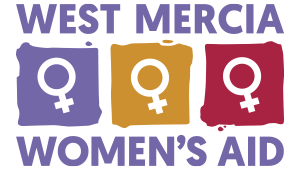On 23rd July 2024 the College of Policing and National Police Chiefs’ Council published the first National Policing Statement 2024 about Violence Against Women and Girls.
The very first sentence in this significant report describes violence against women and girls (VAWG) – including domestic abuse – as having reached ‘epidemic levels’ in the UK. It refers to the data that informed the Statement as ‘staggering’. It goes on to say: “At least 1 in every 12 women will be victims of VAWG per year (2 million victims) and we expect the exact number to be higher”. One in twelve. It is time we heard their voices and challenged that reality. Here is one of those voices.
Victoria’s Story
Victoria is 18 years old and was originally from London, although her family are from Uganda. The family moved away from London when she was a child – this was because Children’s Services had become involved due to the disclosures of abuse.
Victoria had disclosed domestic abuse in the home. She had told her doctor that her mother totally controlled all aspects of her life. She would be beaten with slippers or a belt, and a ginger balm would be applied to her intimate parts as punishment. Victoria’s mother would control who she could see, where she could go and what she wore, and would isolate her from her friends because they did not share the family’s religious beliefs. Victoria’s mother would allow her £10 per week allowance with which to buy all of her school equipment, personal items and clothes. Even then, this allowance was often removed from her with no clear reason. Victoria was usually in old and ripped clothes, as these were not replaced by her mother. She was often hungry, and was being treated by her GP for depression when she was referred to WMWA.
Victoria’s mother’s control was especially harsh in relation to food, and she was only allowed to eat one meal a day. Victoria and the other children in the house were fed very basic meals whereas the adults were allowed the more luxurious foods such as branded rice and fruit. If the children took adult food from the fridge, or helped themselves to fruit from the fruit bowl, they were punished.
Remarkably, Victoria overcame all of these challenges and succeeded in getting the grades she needed to access a university place. Her mother and stepfather refused any support to her and so WMWA staff and Trustees found some suitcases, bought some shopping vouchers, gave her a lift to her university halls and helped to settle her in. We found an old but functioning laptop that was returned to factory settings and just right to help with her studies. And we have made some successful applications for small grants to help Victoria pay for her accommodation whilst she looks for a part-time job nearby. She is now being supported by a local sister organisation with some counselling.
As we packed the car to make the trip to university, Victoria was given an apple from the tree of a neighbour of her support worker. Victoria bit into it, then paused and smiled quietly.
“I can’t believe I can just take this and eat it without getting into trouble” she told us. “It has made me realise that I have escaped: I have managed to break free.”
Footnote:
Once Victoria had come to trust us, she told WMWA that the young man in the family home that she called her ‘brother’ was not biologically related to her, and was brought over from Ghana. The family of this young man had sent him here and were funding him in the belief that he would access education and job opportunities. However, that was not the case at all and he cooks and cleans and cares for the younger children in the household. WMWA has reported concerns about ‘modern slavery’ to the appropriate authorities.
See the full One in Twelve series here

